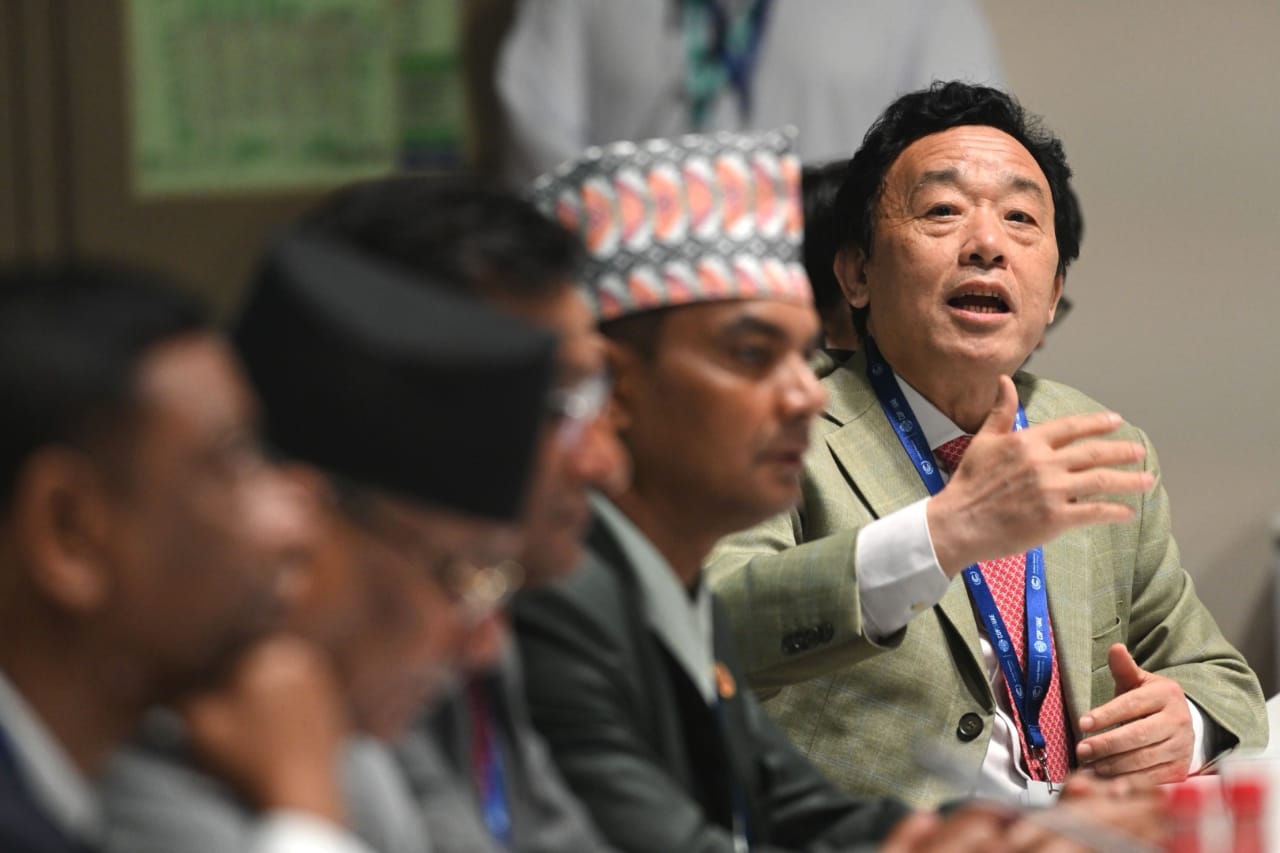COP28: Resilient and healthy mountain systems are key to climate change adaptation and mitigation
FAO Director-General stresses importance of sustainable investments and empowering local communities

Dubai - A wide range of stakeholders need to make a concerted effort to address the root causes of the degradation of mountain areas, a situation which is also occurring within the context of the climate crisis, the Director-General of the Food and Agriculture Organization (FAO) QU Dongyu said today at a high-level event at the UN Climate Climate Change Conference COP28.
Resilient and healthy mountain ecosystems are key for climate change adaptation and mitigation and for agrifood systems transformation, Qu said. “We must innovate, invest sustainably and empower local communities as stewards of their mountain environments,” he added.
The FAO Director-General made the remarks at the High-level Roundtable titled “Call of the mountains: who saves us from the climate crisis?”. Organized by the Government of Nepal, participants at the event included the country’s Prime Minister, Pushpa Kamal Dahal, UN Secretary-General António Guterres, the Prime Minister of Andorra, Xavier Espot Zamora and Kyrgyzstan Foreign Affairs Minister, Jeenbek Kulubayev.
The FAO Director-General underscored the importance of mountain areas and ecosystems. For example snow cover, glaciers and permafrost in mountain areas are projected to continue to decline in almost all regions throughout the 21st century and this has implications on water supply in the lowlands, such as a reduced river flow during summer and dry seasons, affecting large irrigation schemes
Also under threat are mountain forests, which cover 39 percent of the global mountain area and grasslands, and help to lower local temperatures, increase water retention, provide a vital carbon store, and reduce the risk of erosion and landslides.
Approximately 311 million rural mountain people in developing countries live in areas exposed to progressive land degradation. Most are farmers and pastoralists, many are women, youth, and Indigenous Peoples, and 178 million of them are vulnerable to food insecurity.
FAO’s role
As the lead UN agency on mountain issues, FAO hosts the Mountain Partnership Secretariat, a global alliance of over 500 members that empowers mountain communities and promotes sustainable mountain development.
Its activities are in line with the UN General Assembly-proclaimed Five Years of Action for the Development of Mountain Regions (2023 to 2027). FAO believes this is an opportunity to increase cooperation for enhanced sustainable mountain development, uplift mountain communities, and increase global awareness and investments through international processes, governance, research and innovation.
FAO is also the coordinating agency for the preparation and animation of the annual International Mountain Day celebration on December 11 and is mandated to lead observance of it at the global level. “Restoring mountain ecosystems” is the theme of this year's International Mountain Day and was selected to fully include mountains in the UN Decade on Ecosystem Restoration 2021–2030, co-led by FAO and UN Environment Programme.
